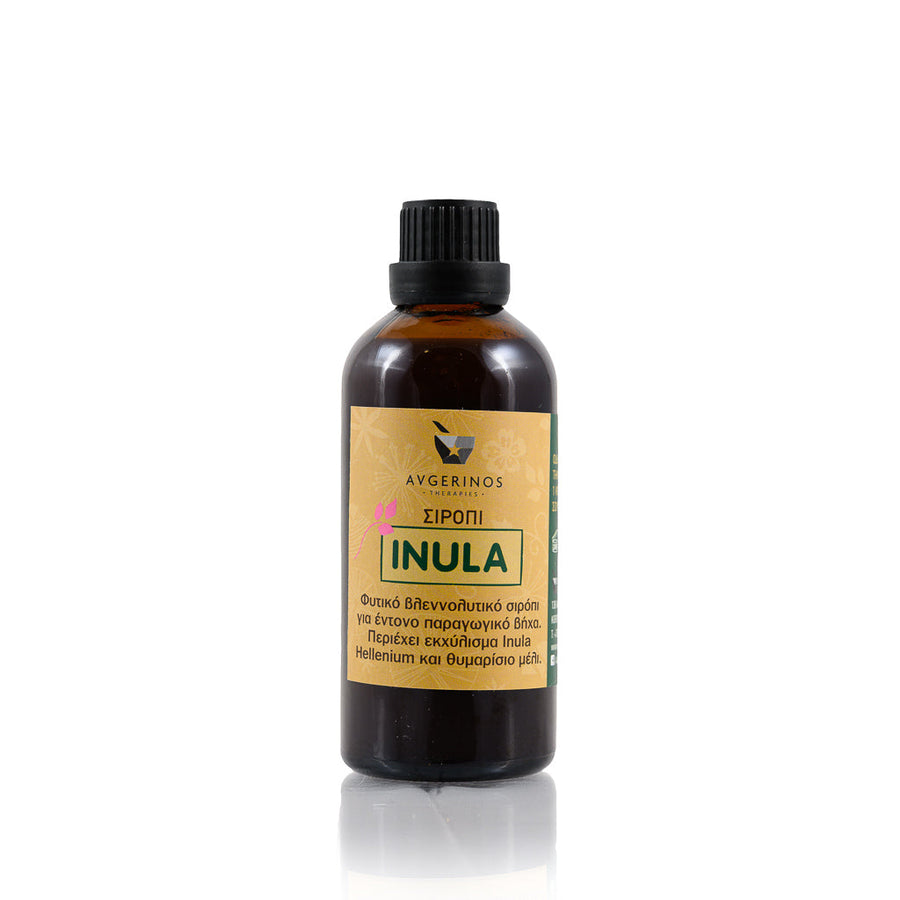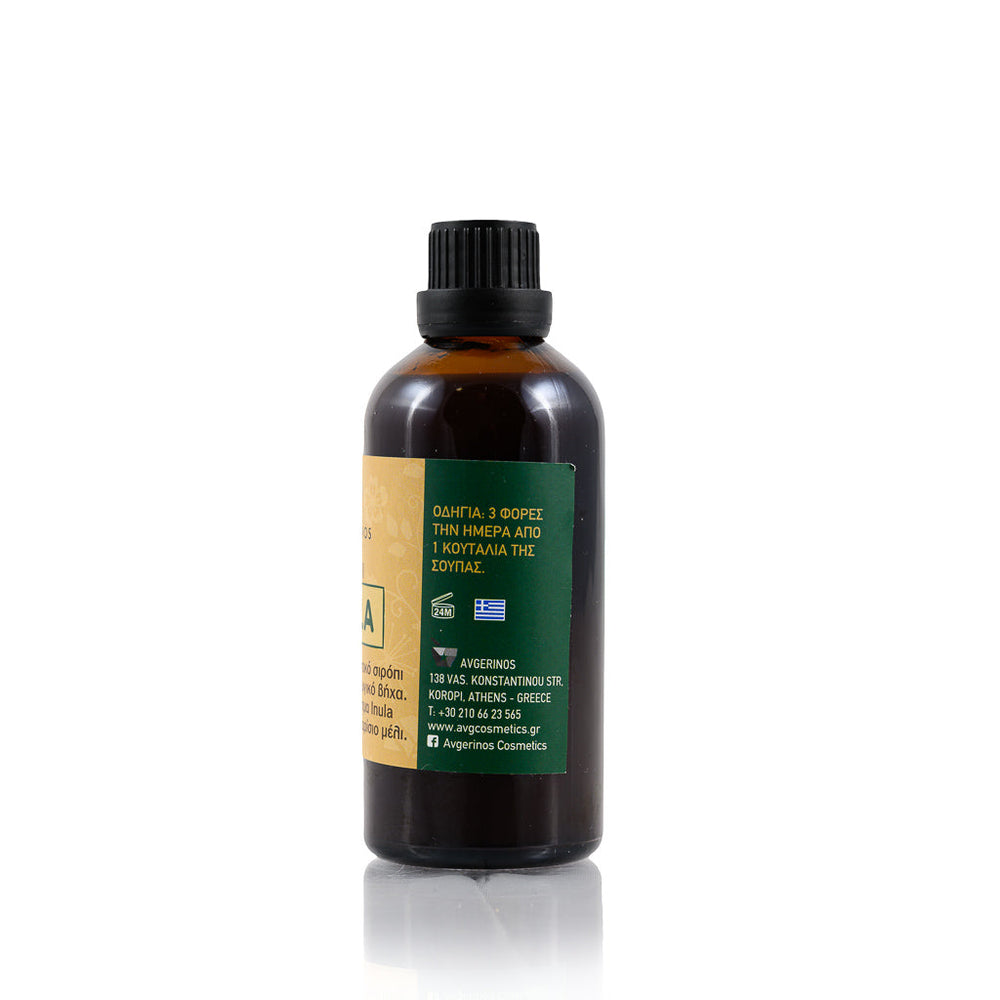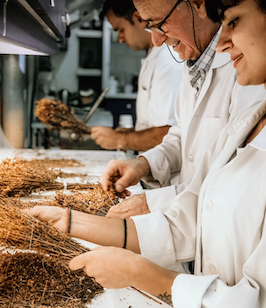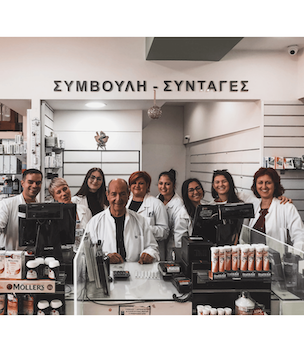Treating anxiety with herbal therapy
In recent years the term holistic or alternative therapy has been heard frequently, as an increasing number of people choose this path in order to return their physical condition to the stage of good health. Holistic therapy approaches the human being as a three-dimensional being body - mind - spirit and takes into account not only the food we take from the mouth, but places special emphasis on the way of life and the impressions that our inner world receives through the senses.
This approach helps us to have a complete picture of how we eat and how we think and in this way we can identify and address the cause of the imbalance.
The human physical structure is built in such a way that it can cope with the hardships of life and the strain of daily movements.
It has an innate wisdom that helps it coordinate with the daily cycle (circadian rhythm), with the seasons and has important defense mechanisms against disease and stressful situations. Man, as an intermediate being, between heaven and earth, receives the effects of nature as it happens in the entire animal and plant kingdom.
The earth is a living organism and is endowed with the property of renewal by its own powers. We would say that it has multiple "rechargeable" abilities with the sole purpose of providing goods for the survival of all beings that reside on it. Its magnetic power to retain the heat energy of the sun and the moisture of the oceans contributes to this.
The science of herbal medicine is part of holistic treatment. It developed from man's art of observing nature and the understanding that every plant, herb, tree has a purpose to fulfill both in the wider ecosystem of the planet and in the inner ecosystem of man. With the advancement of technology we can benefit from the phytotherapeutic properties of herbs for many diseases, with raw materials coming from the east to the west.
Today, one of the most common reasons for someone to visit their pharmacist or alternative healer is stress and its effects with particular emphasis on hyperexcitability of the heart, insomnia and psychological transitions.
Let's see below some herbs that will effectively help us to have a healthy heart, good mood, deep and restful sleep.
- Valerian (Valeriana officinalis)
It is used to treat nervous tension, anxiety and insomnia.
The calming effect of the plant is due to the valpotrioides it contains, which relax the nervous system. Valerian strengthens the heart and helps with tachycardia, as well as irritable bowel attacks triggered by stressful factors.
Precautions:
To be used in small amounts and for a short period of time, otherwise it has opposite effects. Use should be avoided by pregnant women and children.
- Ypericum
Contains tannin, glycosides, resin and volatile oils.
The part of the plant used is the aerial parts and is collected during its flowering period. It has a soothing and anxiolytic effect, helps to treat and deal with anxiety caused by changes in our lives.
It is considered a suitable herb for irritability and at the same time has an anti-inflammatory and healing effect.
Precautions:
In case of severe depression, its use is recommended upon the advice of a specialist therapist.
- Hawthorn berries (Crataegus oxyacanthoeides)
Ripe hawthorn fruits are harvested in September – October. Among other things it contains ascorbic acid and flavonoids.
It is a traditional herb for stimulating the heart and circulatory system, while lowering blood pressure. It is considered an adaptogenic plant, because it normalizes the function of the heart either by stimulating or suppressing the tachycardia, depending on what is necessary in each case.
Precautions:
Although the fruits of hawthorn are particularly beneficial, in heart diseases, the advice of a specialist doctor is recommended.
- Melissa officinalis
Honeysuckle is harvested 2-3 times a year from June to September. The part of the plant used is the young shoots which are then dried in the shade. It is rich in geraniol essential oil, citronellal and flavones.
It is used for nervous headaches, in periods of anxiety, rapid pulse, nervous attacks and lowers the pressure. It is both refreshing and calming because it has a cooling effect on the nerves and the heart. Contains oils that relieve stress and tension and reduce depression.
- Passiflora (Passiflora incarnata)
The leaves of the plant are collected after flowering and together with the fruits are dried in the shade.
Passionflower is the main herb for combating insomnia and its use promises a calm and restful sleep without being addictive or suppressing mental alertness. It also has an anticonvulsant effect and relieves asthma, especially when there is convulsive activity arising from tension and overactivity. For better results it is combined with valerian and honeysuckle.
In nature we find a multitude of herbs that are ready to serve our health in the best way, as long as we look for them. Phytotherapeutic mixtures are prepared in such a way as to cover the particular needs of each individual depending on the intensity and frequency of the symptoms.









Leave a comment